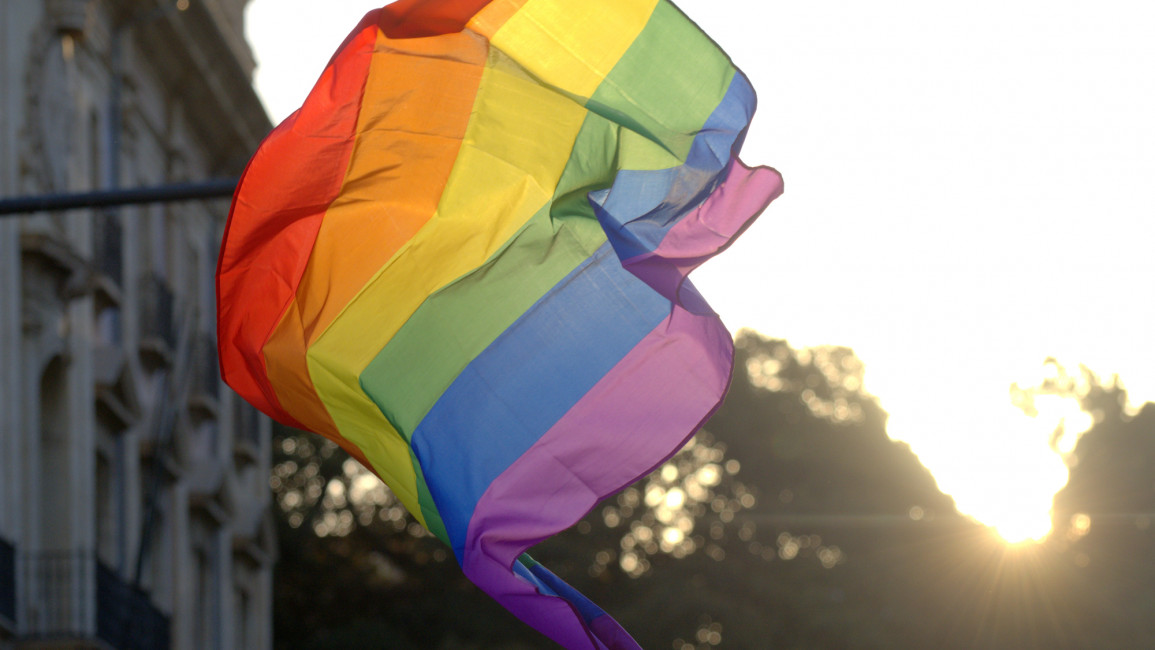Morocco-based French schools trigger controversy with pro-LGBTQ+ lessons
Teaching pro-LGBTQ+ lessons in Morocco-based French schools has led to several lawsuits against the institutions prompting a layered debate on the colonial legacy of French mission schools and widespread homophobia in the North African state.
The controversy began last December when a teacher at the French mission school of Balzac "encouraged students to accept the notions of homosexuality," according to local reports.
As some parents learned about the teacher's lessons they reported the incident to the school's administration which "remained silent and indifferent."
Three months later, the parents decided to take the case to the court and issue a press statement with their lawyer.
"The children in question are below the age of 10. (...) the teacher's actions are an odious exploitation of their childhood and a crime against them [students]," read the statement written by the parents' lawyer Abderrahim Jamai.
The teacher in question was reportedly fired on 6 April.
The New Arab contacted the school's administrators for comment, but they refrained, saying only the French embassy can comment on the incident. No official from the embassy was available to give a comment.
On 13 April, a new pro-LGBTQ lesson in Marrakech's French mission school Victor Hugo fueled the debate. Parents were reportedly shocked to see the new 10th-grade Spanish curriculum, depicting same-sex relationships and families with same-sex parents.
"They are trying to feed them homosexuality ideologies and nonsense about pronouns," a mother of a student at the school told the TNA.
The debate around the legacy of French schools
French mission schools are often unaffordable for the majority of the Moroccan population, and their curricula are rife with information and topics that do not match the local context.
The most affordable French schools of the Agency for French Education Abroad (AEFE) charge yearly fees from 33,630 MAD (US$3,360) up to 43,180 MAD (US$43,100) for Moroccans.
Those price ranges are far from affordable for the working class in a country where the minimum wage is less than US$300.
But that did not stop various classes in Moroccan society to join the debate on social media, evoking a dark history of colonisation and racial supremacy behind the today-woke institutions.
Moroccans should raise up against all French schools who seek to indoctrinate our children and poison their minds with "values" that have nothing to do with our Islamic values. The Moroccan govt should take action against these schools. https://t.co/nxJCyp8KYv
— Samir Bennis (@SamirBennis) April 13, 2023
The name of the "French mission" is reportedly reminiscent of that of the "French civilising mission" which served as the ideological basis for French colonial expansion.
Jules Ferry, a French statesman and philosopher, summarised the foundations of this ideology in an infamous speech in 1885: "The superior races have a right vis-à-vis the inferior races [...] because there is a duty for them. They have a duty to civilize the inferior races."
A paper published by the Morocco-based French Lycée Lyauté in the 1990s voiced a similar ideology, stating: "(...) in 1912, the French established the Protectorate and put forward their concern for assistance and training of people."
The same paper by Lyauté also admits that the French Protectorate "perhaps did not imagine entering a country with an educational past so old and so rich," referring to the fact that the first university in the world was established in Fes, Morocco 895 CE.
Today Lycée Lyautey stands tall in a prestigious neighbourhood in Casablanca, bearing the name of the French Army general and colonial administrator of Morocco Hubert Lyautey.
Many Moroccans view the name as disrespectful towards those who fought for the decolonisation of the country.
Over the years, the French schools in Morocco were also criticised for "uprooting" students from their Moroccan culture, mainly through a heavily influenced French curriculum that leaves students unaware of their country's heritage and history and find themselves often incapable of speaking Arabic or Tamazight.
The crucial question might be why Moroccan families continue to enrol their children in schools they heavily disapprove of.
easy fix, don't enroll ur children in french schools if u don’t want them to learn about things that contradict ur PERSONAL beliefs.. I know, mind blowing 🤯🤯🤯 pic.twitter.com/H3BaWiwQFj
— 𖤐🐀 (@dvilsdoll) April 4, 2023
Even though those schools are mainly enrolled by the rich, numerous middle-class families sacrifice financial comfort to afford the tuition for their children in a mission school since a degree from these institutions makes it easier to enter France-based universities amid tightening restrictions on Moroccan students.
Also accounting for more than 50,000, French people based in Morocco, who are charged less fees than Moroccans, are major clients for these institutions.
The debate over French vs Moroccan schools have ongoing for years, but this time is taking place in a politically charged environment due to France's refusal to take a clear position on the Western Sahar dispute.
Nevertheless, numerous social media commentators argue that the anti-colonisation feelings should not align with supporting the homophobic lawsuits against the schools.
Article 489 of the Moroccan penal code punishes same-sex relations by imprisonment from six months to three years and a fine of up to US$1,200 (MAD 12,200).
Though, in the last years, pro-LGBTQ activism raised in the North African state, calling for the elimination of the article that continues to oppress many citizens based on their sexual orientation.



![Hundreds demonstrate against the White House Correspondents' Dinner in support of Gazan journalists. [Brooke Anderson/TNA]](/sites/default/files/styles/image_330x185/public/2024-04/5cde0bce-4652-4e28-a001-f06b9b8f8e28.jpg?h=ddb1ad0c&itok=R_uaRAn7)